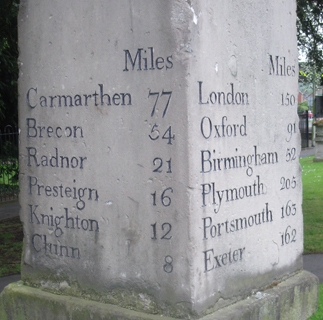Location data practitioners have developed an ethics charter to promote responsible use of location technology. The Locus Charter, aided by The Benchmark Initiative and EthicalGeo, is a proposed set of common international principles to guide responsible practice when using location data, including through safeguarding privacy, protecting the vulnerable, and addressing any harmful impacts of bias in data.
The Benchmark Initiative and EthicalGeo are inviting individuals, businesses, and government agencies to join The Locus Charter community and help to shape equitable and sustainable practice around the use of location data. Member organisations include the American Geographical Society and Britain’s mapping agency, Ordnance Survey.
As organisers say, location data is at the heart of a debate around digital privacy. Tech firms Apple and Facebook are in conflict over how much apps should be able to track users. Recent research shows personal information can be inferred from location data collected from smartphones, and that anonymisation can often be reversed to reveal people’s identities. As mobile phones and other devices generate more detailed location data, so challenges grow.
Hence The Locus Charter, supported by Omidyar Network, Omidyar Network, Henry Luce Foundation and Ordnance Survey. The Locus Charter principles are:
Realise the benefits location data offer to society and economies
Understand the potential impacts of using location datasets
Do no harm when using location data
Protect the vulnerable
Recognise and address the impacts of bias in data
Respect people’s dignity by avoiding unnecessary intrusion
Do not collect or use more data than necessary for a task
Actively protect privacy and seek consent
Prevent identification of individuals
Provide accountability about how data is used.
The aim; to restore public trust in location technology, tech that can work for public health, response to the Covid-19 pandemic, and against climate change, say organisers. At present, there are no shared, international principles for responsible use of location data. The UK’s Geospatial Commission has committed to publish guidelines for the ethical use of location data, and the World Wide Web Consortium is exploring this area. But, say those behind the Charter, many users of location data don’t know what questions to ask, to make sure they can avoid unintended harms. The Locus Charter sets out the key areas where attention can improve standards of practice, help to protect vulnerable groups, and safeguard individual privacy and the broader public interest.
Denise McKenzie, Programme Director of the Benchmark Initiative, was among the online launch speakers. She said: “Low public trust in technology can have public health consequences, as we have seen with lower than expected uptake in track and trace apps that help in the fight against Covid-19. If we want location technology to fulfil its potential as an effective tool for public good, then it must enjoy a high degree of public confidence. The Locus Charter offers an opportunity to enhance ethical practice in the use of location data, improving public trust in this powerful technology.”
Ben Hawes, Engagement Director of The Benchmark Initiative, said: “Location data can help us do great things now, and it will be really important in addressing challenges including climate change. But using it creates risks as well as opportunities. At the moment there are no common international principles to support responsible use of location data. We hope that the Charter starts that collaboration. We hope organisations and geospatial professionals will use it, and work together to promote good practice globally”.
And Lisa Allen, Head of Data and Analytical Services at Ordnance Survey, said: “The ethical use of data is fundamental. Using this common framework sets a standard across location data. It is essential for our customers to trust our industry in our use of data. Location data offers greater insights, better decisions, and smarter outcomes. By embedding this charter, it is a commitment to managing and analysing location data in an ethical way.”
To read the charter in full and join the community, visit: https://ethicalgeo.org/locus-charter/.










